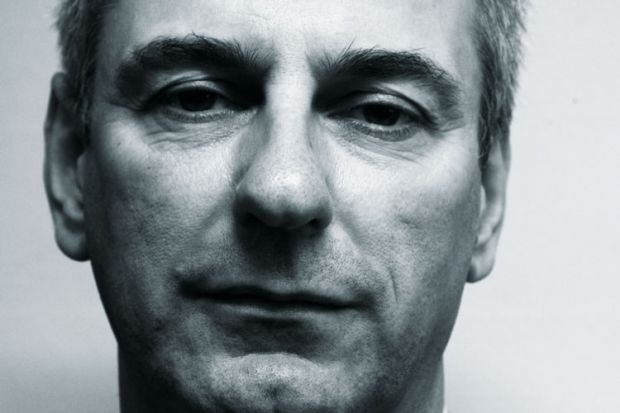Kevin Maguire is associate editor of and political columnist at the Daily Mirror. He previously served as chief reporter at The Guardian and was labour correspondent for The Daily Telegraph. A regular on television and radio, he also used to host his own programme on talk radio station LBC 97.3. A native of the North East, he was appointed visiting professor of journalism at the University of Sunderland last month.
Where and when were you born?
South Shields on the coast of northeast England in 1960, third of six children. Dad was a miner, mam worked in a biscuit factory and as a cleaner.
How has this shaped you?
It gave me a work ethic and a fierce belief that life should and can be fairer for people who aren’t born with a silver spoon in the mouth. Grumbling is understandable, but you’ve got to do something if you want a better world.
What do you hope to achieve in your visiting professorship?
Pass on my experience and do my bit to help students live their dreams. Sunderland’s a great university with fab staff and brill facilities. The more I see, the more I like.
Do you hope this might be a springboard into a different career?
Journalism’s been good to me, so I’ll stick with it unless journalism leaves me. I’ve had offers in the past (PR, spin doctor, even an MP), but I love what I do.
What is the future of print journalism?
Much rosier than we often shout! People will always want to buy the printed word in papers, magazines and books, alongside the net, TV and radio.
What role did higher education play in bringing you to this point in your career?
Studying politics at the University of York opened my eyes and raised horizons not least by introducing me to new people from different backgrounds (they’re called Southerners!). And a one-year journalism postgraduate diploma at Cardiff University was my passport to a job.
You’ve had a fair few splashes in your time at the Mirror. Is there one in particular that gives you most pleasure/pride, and for what reasons?
Revealing that humans could be infected by mad cow disease won awards, and ringing John Prescott about his affair was surreal; but my favourite was helping a waitress win back her job when she was sacked…for eating an After Eight mint left on a table after a reception. Bonkers.
You were once described as a “mischief man” in a media profile. Is that how you’d regard yourself still?
I might be addicted to mischief, but I intend to cause trouble for the powerful who are guilty of sharp practice, corruption, hypocrisy and making the lives of less powerful people miserable. I won’t pretend it isn’t fun.
Which is more high-pressured: journalism or academia?
Academia. I shudder when I hear lecturer friends talking of stress from “customer” students (and sometimes parents), who think they’re buying a degree, and about cash-strapped managements. Journalism’s no cakewalk, but I appreciate that others have it tougher.
If you were a prospective university student now facing £9,000 a year fees, would you go again or go straight into work?
[If they’d been around in my day] I fear I’d have gone straight into work. It would’ve been a mistake, but I was (cue violins) the first in our family to go to university (and the only one of the six kids to do so) and I would’ve been frightened of the debt. Two of my own kids have gone, and I hope the third will. I encourage every kid I know to go to university.
What has changed most in higher education in the past five to 10 years?
Looking from the outside, I grimace at those student debt levels. Horrendous. I read the participation figures too, but some kids from poorer backgrounds are put off. The Tories’ abolishing maintenance grants will make it worse.
What’s your biggest regret?
One of them is not working harder at university. I left with a 2:1, but 30-plus years on I’m still reading some of the books. I didn’t fully grasp the opportunity. A friend I shared houses with had as much fun as I did but was disciplined and got a first.
Have you had a eureka moment?
I suppose when I realised that I could do journalism. You worry you won’t be good enough, then suddenly you’re in print. It was a great feeling.
Tell us about someone you admire.
I was a huge admirer of the brilliant journalist Geoffrey Goodman, who I grew up reading in the Daily Mirror. Living? Dennis Skinner. Helped him write his book. He’s shrewd, bright and very funny.
What are the best and worst things about your job?
The freedom to be nosy, to ask questions and to say what you think are by far the best. The worst? Some of the people you have to talk to.
What keeps you awake at night?
I’m a pretty good sleeper, but other than the occasional fretting that I’ve made an error, every now and again I suffer a nightmare that, believe it or not, is that I must hand in a PhD the following morning and I’ve not written a single word.
If you were the universities minister for a day, what policy would you immediately introduce to the sector?
Abolish tuition fees. I received a free education and a maintenance grant, so I couldn’t deny others what I enjoyed. A graduate tax would be better, but my preference would be to force Amazon, Facebook, Google et al to pay fairer taxes to fund public services.
Journalists are bound by their profession to tell the truth: will Sunderland stay in the Premier League?
Yes. I was there when we beat 3-0 local rivals Newcastle for a record sixth straight derby win. Glorious.
Appointments
Andrew Young has been appointed the London School of Economics’ inaugural chief operating officer. In the role, created to oversee and improve the integration of LSE’s non-academic services, Dr Young will be directly responsible for key professional service divisions including estates, human resources, information management and technology, residences and catering. He joins from the London School of Hygiene and Tropical Medicine, where he held a similar position. “I am looking forward to a new challenge, and thrilled to be joining LSE,” said Dr Young, who will start work at the LSE in January.
An internationally renowned eye nursing researcher has been appointed head of the School of Healthcare Sciences at Cardiff University. Heather Waterman, who joins from the University of Manchester, will aim to build on the school’s reputation of excellence in teaching and innovative health research. Professor Waterman has more than 25 years’ experience in healthcare sciences research and served as professor of nursing and ophthalmology at Manchester for 13 years. She said that her goal was to ensure that students continue to get an excellent experience “that gives rise to caring, competent, ethically aware and knowledgeable healthcare professionals”.
Paddy Ireland has been named dean of the Faculty of Social Sciences and Law at the University of Bristol, a role he will start later this month. He previously served as professor of law and director of research in the faculty. The University of Lincoln has appointed Stephen Bevan deputy head of the School of Life Sciences. Dr Bevan, a specialist in human genetics, joins from the University of Cambridge, where he was principal research associate in cerebrovascular genetics. Ehsan Mesbahi has been made vice-principal and pro vice-chancellor (research and enterprise) at the University of the West of Scotland. Professor Mesbahi, who takes up his position in January, is currently dean and chief executive of Newcastle University International Singapore.
POSTSCRIPT:
Print headline: HE & me
Register to continue
Why register?
- Registration is free and only takes a moment
- Once registered, you can read 3 articles a month
- Sign up for our newsletter
Subscribe
Or subscribe for unlimited access to:
- Unlimited access to news, views, insights & reviews
- Digital editions
- Digital access to THE’s university and college rankings analysis
Already registered or a current subscriber?




